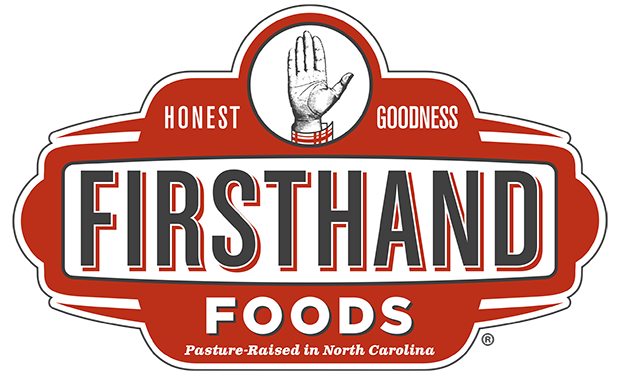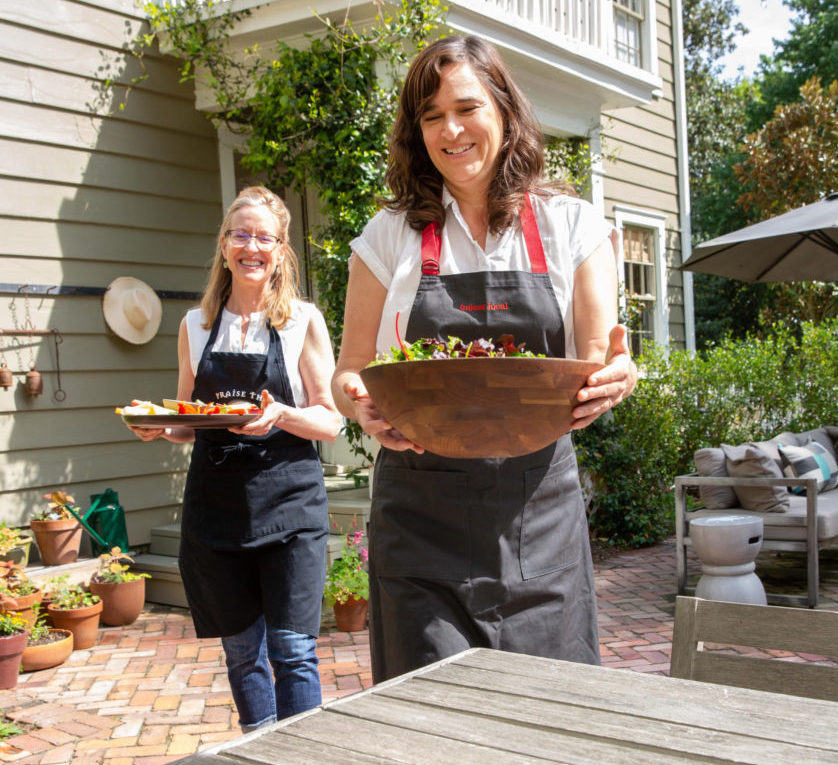Why Women-Owned Matters – When Tina and I decided to launch Firsthand Foods, we didn’t give much thought to the fact that the industry we hoped to influence was (and still is) largely run by men. We were just excited to see whether or not our unique business model could work! Back in those early, exhilarating days, we were singularly focused on differentiating our approach from the global meat behemoths. Building a profitable, high quality, local meat supply chain grounded in the core values of collaboration and transparency was our passion. Now that we’re almost 12 years in and have achieved those early ambitions, we can look back and reflect on the significance of being female entrepreneurs in a male-dominated industry. As it turns out, we’ve joined a small minority of women business owners (less than 5%) who generate more than $1M in annual revenues. Did being women-owned help or hinder our efforts? It certainly presented challenges, but it has also afforded us unique opportunities to innovate.
It probably doesn’t come as a surprise that meat supply chains are male dominated. According to the latest census, 64 percent of all farms are male-owned and operated. The global meat industry giants—Cargill, Tyson Foods, JBS and National Beef Packing—were founded and are now largely owned by men. Close to 75%of butchers and meat processing workers in the US are men. The same percentage holds true for chefs.
How did this huge male presence impact our journey as business owners and innovators in the meat industry? Probably the biggest challenge was building trust. It took us a long time (5 years) to develop the network of livestock producers that we enjoy today. Whether that was entirely due to the fact that we were women is unlikely. We also had no track record as business owners and neither of us came from a farming background. So, skepticism was a natural response. But building trust takes a little longer when you’re not the gender most folks expect to see walking in the door (or, in our case, walking across a pasture). We will always be indebted to the farmers and others who believed in us from the get-go.
Overt sexism doesn’t happen often but when it does, it can be frustrating. There are many examples we can point to throughout our journey where men assume that we are “front of the house” administrators rather than actual owners and decision-makers. Sometimes we just let it slide, especially if it works to our advantage. For example, our very first hire was a male chef who brought with him loyal connections, many of whom then became our customers. For years, he was assumed to be the owner and while that was slightly offensive, we didn’t stress it because it helped us build our business. Less forgivable was the time Firsthand Foods was identified as worthy of a 2-day field trip by a group of livestock producers, meat processors and extension agents interested in starting a similar business in a nearby state. Their advance team (in charge of soliciting our availability to host and speak at the event) were so blind to two women in ownership positions that they first contacted our male farmers and University extension partners before realizing they needed to speak to us directly. And, to make matters worse, they then assumed that we would happily give of our time and intellectual property at no cost. We quickly disabused them of that notion and then proceeded to have a fruitful exchange.
Overall, being two women in partnership has afforded us many advantages. Most significantly, we share a strong orientation toward collaboration. It’s a core value within our business that allows us to focus on our strengths and partner for the rest. It’s one key reason we are still going strong 12 years later. We didn’t take on too much or grow beyond our core competencies. Not that we aren’t growth-oriented, just that we’re not interested in owning or doing it all ourselves. This attitude seems more sustainable and helps us stay rooted in community. Firsthand Foods might look and feel quite different if we had been two men simply due to the patriarchy and the pressure it puts on men in business to be “large and in-charge.”
Another advantage of being women-owned is that we value being our whole selves and offering flexibility when needed. Due to cultural gender expectations, women are often attuned to the needs of family. We have instinctively established business development goals and weekly rhythms that enable us and our team to have lives outside of work—to invest in partnerships, raise children, care for aging parents, and take much needed vacations. This year we established a new policy that offers a 3-month sabbatical to all employees who have worked with us for at least seven years. Granted, this currently only applies to us as founders, but it’s the kind of policy designed to help our team nourish all parts of themselves.
As a women-owned business, we are oriented to see other women and how they belong in this industry. It helps us build a team culture that attracts values-aligned employees, including men who value working with and for women. Firsthand Foods has 8 full-time employees, five of whom are women. We’d like to think that we’re part of a growing trend and recent reports suggest so. According to NC Choices, women in North Carolina are entering the local meat business at a rate well above the national average. At least 30 percent of meat farms involve a female operator in North Carolina, twice as many as are found nationally.
It may not be what we set out to do but we are proud to be paving the way for other female entrepreneurs, especially those helping to transform the male-dominated meat industry.

